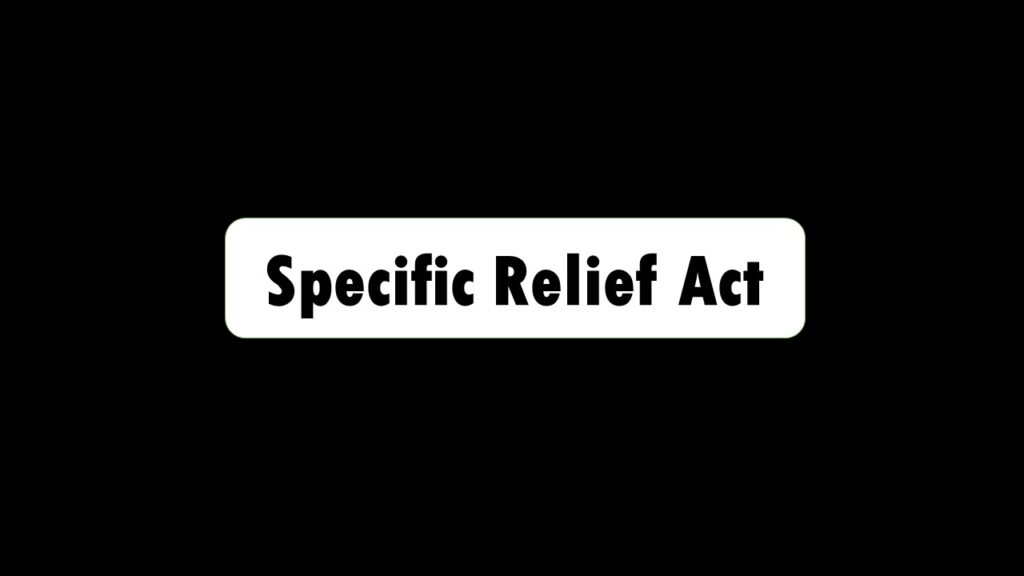Muppudathi Pillai vs. Krishnaswami Pillai [AIR 1960 Mad 1]: Madras High Court
The remedy under S. 39 is to remove a cloud upon the title, by removing a potential danger but it does not envisage an adjudication between competing titles
12. The principle is that such document though not necessary to be set aside may, if left outstanding, be a source of potential mischief. The jurisdiction under S. 39 is, therefore, a protective or a preventive one. It is not confined to a case of fraud, mistake, undue influence etc. and as it has been stated it was to prevent a document to remain as a menace and danger to the party against whom under different circumstances it might have operated. A party against whom a claim under a document might be made is not bound to wait till the document is used against him. If that were so he might be in a disadvantageous position if the impugned document is sought to be used after the evidence attending its execution has disappeared. Section 39 embodies the principle by which he is allowed to anticipate the danger and institute a suit to cancel the document and to deliver it up to him. The principle of the relief is the same as in quia timet actions.”
13. … The provisions of Section 39 make it clear that three conditions are requisite for the exercise of the jurisdiction to cancel an instrument : (1) the instrument is void or voidable against the plaintiff; (2) plaintiff may reasonably apprehend serious injury by the instrument being left outstanding; (3) in the circumstances of the case the court considers it proper to grant this relief of preventive justice. On the third aspect of the question the English and American authorities hold that where the document is void on its face the court would not exercise its jurisdiction while it would if it were not so apparent. In India it is a matter entirely for the discretion of the court.
14. The question that has to be considered depends on the first and second conditions set out above. As the principle is one of potential mischief, by the document remaining outstanding, it stands to reason the executant of the document should be either the plaintiff or a person who can in certain circumstances bind him. It is only then it could be said that the instrument is voidable by or void against him. The second aspect of the matter emphasises that principle. For there can be no apprehension if a mere third party asserting a hostile title creates a document. Thus relief under S. 39 would be granted only in respect of an instrument likely to affect the title of the plaintiff and not of an instrument executed by a stranger to that title.
15. Let us take an example of a trespasser purporting to convey the property in his own right and not in the right of the owner. In such a case a mere cancellation of the document would not remove the cloud occasioned by the assertion of a hostile title, as such a document even if cancelled would not remove the assertion of the hostile title. In that case it would be the title that has got to be judicially adjudicated and declared, and a mere cancellation of an instrument would not achieve the object. S. 42 of the Specific Relief Act would apply to such a case. The remedy under S. 39 is to remove a cloud upon the title, by removing a potential danger but it does not envisage an adjudication between competing titles. That can relate only to instruments executed or purported to be executed by a party or by any person who can bind him in certain circumstances.
16. There is one other reason for this conclusion. Section 39 empowers the court after adjudicating the instrument to be void to order the instrument to be delivered up and cancelled. If the sale deed is or purported to have been executed by a party, the instrument on cancellation could be directed to be delivered over to the plaintiff. If on the other hand such an instrument is executed by a trespasser or a person claiming adversely to the plaintiff it is not possible to conceive the instrument being delivered over not to the executant but his rival, the plaintiff. It is only in such cases that it can be said there is a cloud on his title and an apprehension that if the instrument is left outstanding it may be a source of danger. Such cases may arise in the following circumstances: A party executing the document, or a principal in respect of a document executed by his agent, or a minor in respect of a document executed by his guardian de jure or de facto, a reversioner in respect of a document executed by the holder of the anterior limited estate, a real owner in respect of a document executed by the benamidar, etc. This right has also been recognised in respect of forged instruments which could be cancelled by a party on whose behalf it is purported to be executed. In all these cases there is no question of a document by a stranger to the title. The title is the same. But in the case of a person asserting hostile title, the source or claim of title is different. It cannot be said to be void against the plaintiff as the term void or voidable implies that but for the vitiating factor it would be binding on him, that is, he was a party to the contract.
